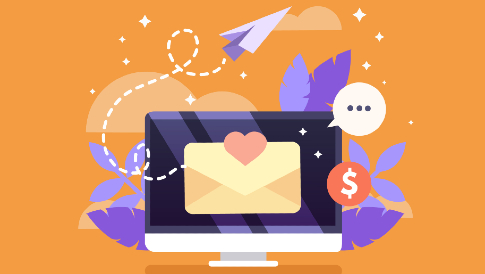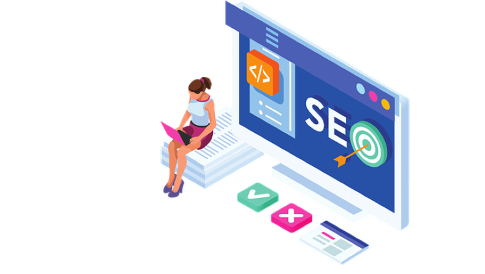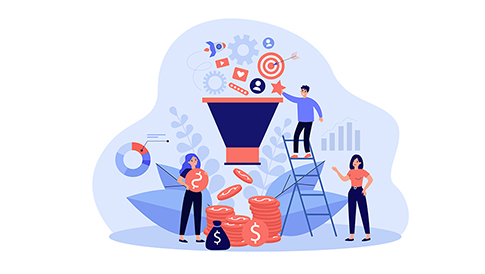Ways to Use AI to Improve Email Marketing Strategy
Email marketing remains a cornerstone of digital success, delivering personalized messages directly to customers’ inboxes. However, as competition grows and consumer expectations evolve, marketers must adapt. Artificial intelligence (AI) is transforming email marketing by automating processes, optimizing campaigns, and enhancing personalization. From tools like an email warmup service to generative AI, the possibilities are vast. This article explores how AI can elevate your email marketing strategy, offering practical insights and benefits for businesses aiming to stay ahead.
What is AI Email Marketing?
AI email marketing refers to the use of artificial intelligence technologies to streamline, enhance, and personalize email campaigns. By leveraging machine learning, natural language processing (NLP), and predictive analytics, AI helps marketers create more effective strategies. Tools like Snov.io’s email warmup service, for instance, use AI to improve email deliverability by gradually increasing sending volume, ensuring emails land in inboxes rather than spam folders. Beyond deliverability, AI analyzes user behavior, optimizes send times, and even generates content—making it a game-changer for modern email marketing.
At its core, AI email marketing combines data-driven insights with automation to deliver the right message to the right person at the right time. It’s not just about efficiency; it’s about creating meaningful connections with your audience.
Benefits of AI in Email Marketing Strategy
AI offers a range of advantages that can transform how businesses approach email campaigns. Here’s how it delivers tangible value.
Increases Revenue
AI boosts revenue by enabling hyper-targeted campaigns. Predictive analytics identifies high-value customers and forecasts their purchasing behavior, allowing marketers to craft offers that resonate. For example, AI can segment audiences based on past interactions, ensuring promotional emails align with individual preferences. A study by McKinsey found that companies using AI-driven personalization see revenue increases of 5-15%. By optimizing subject lines, content, and send times, AI ensures higher open rates, click-through rates, and conversions—directly impacting the bottom line.
Decreases Costs
Manual email marketing tasks—like list segmentation, A/B testing, and performance tracking—are time-intensive and costly. AI automates these processes, reducing the need for extensive human intervention. Tools like email warmup services minimize the risk of being flagged as spam, saving resources that would otherwise be spent resolving deliverability issues. Additionally, AI eliminates guesswork by identifying the most effective strategies, cutting wasteful spending on underperforming campaigns. The result? Lower operational costs and a higher return on investment.
Extracts Large Sets of User Data
AI excels at processing and analyzing vast amounts of data. It can sift through customer interactions, purchase histories, and behavioral patterns to uncover actionable insights. For instance, AI tools integrate with CRM systems to track how users engage with emails, websites, and products. This data fuels segmentation, enabling marketers to tailor campaigns with precision. Whether it’s identifying churn risks or spotting upsell opportunities, AI’s data-extraction capabilities provide a deeper understanding of your audience.
Scales Email Marketing Campaigns
Scaling email marketing manually is a logistical nightmare. AI makes it seamless by automating repetitive tasks and adapting to growing audiences. As your subscriber list expands, AI adjusts campaigns in real-time, ensuring consistency and relevance. It can replicate successful strategies across thousands of recipients while maintaining personalization. Services like Snov.io’s email warmup ensure that even large-scale campaigns maintain high deliverability, keeping your emails out of the spam folder as volume increases.
How AI Automation Is Changing Email Marketing?
AI automation is reshaping email marketing by introducing efficiency and innovation. From crafting content to delivering personalized experiences, here’s how it’s driving change.
AI Email Automation Use Cases
AI-powered automation covers a wide range of applications. For example, an email warmup service like Snov.io automates the process of building sender reputation, gradually increasing email volume to improve inbox placement. Other use cases include automated drip campaigns triggered by user actions (e.g., abandoned carts), dynamic content insertion based on real-time data, and AI-driven A/B testing that identifies winning variants faster than manual methods. These tools save time while delivering results that rival human expertise.
Generative AI Has Revolutionized Content
Generative AI, such as tools built by xAI or similar platforms, has transformed email content creation. It can write compelling subject lines, craft persuasive body copy, and even suggest CTAs tailored to specific audiences—all in seconds. Marketers can input a few parameters (e.g., tone, target demographic), and AI generates multiple variations for testing. This not only speeds up production but also ensures content aligns with brand voice and customer preferences, making emails more engaging and effective.
AI-Powered Automation Unlocks True Personalization in Email Marketing
Personalization goes beyond adding a recipient’s name. AI analyzes data points like browsing history, purchase patterns, and even weather conditions to create emails that feel bespoke. For instance, AI can send a discount code for raincoats to customers in rainy regions while offering sunglasses to those in sunny areas—all automatically. This level of customization builds trust and loyalty as customers receive relevant, timely messages. With AI, personalization scales effortlessly, even for millions of subscribers.
Marketer Know-How Is the Only Thing Holding AI Back
Despite its potential, AI isn’t a magic bullet. Its effectiveness depends on marketers’ ability to harness it. Understanding your audience, setting clear goals, and interpreting AI-generated insights require human expertise. For example, while an email warm-up service can boost deliverability, marketers must still craft an email marketing strategy to engage recipients once emails land. AI amplifies results, but it’s not a replacement for creativity and strategic thinking. Those who master this balance will see the most tremendous success.
Conclusion
AI is revolutionizing email marketing by driving efficiency, enhancing personalization, and unlocking new revenue opportunities. From increasing deliverability with tools like Snov.io’s email warmup service to generating tailored content with generative AI, the benefits are clear: higher revenue, lower costs, and scalable campaigns built on rich user data. However, AI’s full potential shines when paired with human expertise. As of March 25, 2025, businesses that embrace AI-driven strategies will stay ahead in a crowded inbox landscape. Start small—experiment with automation, refine your approach—and watch your email marketing soar.




Leave a Reply